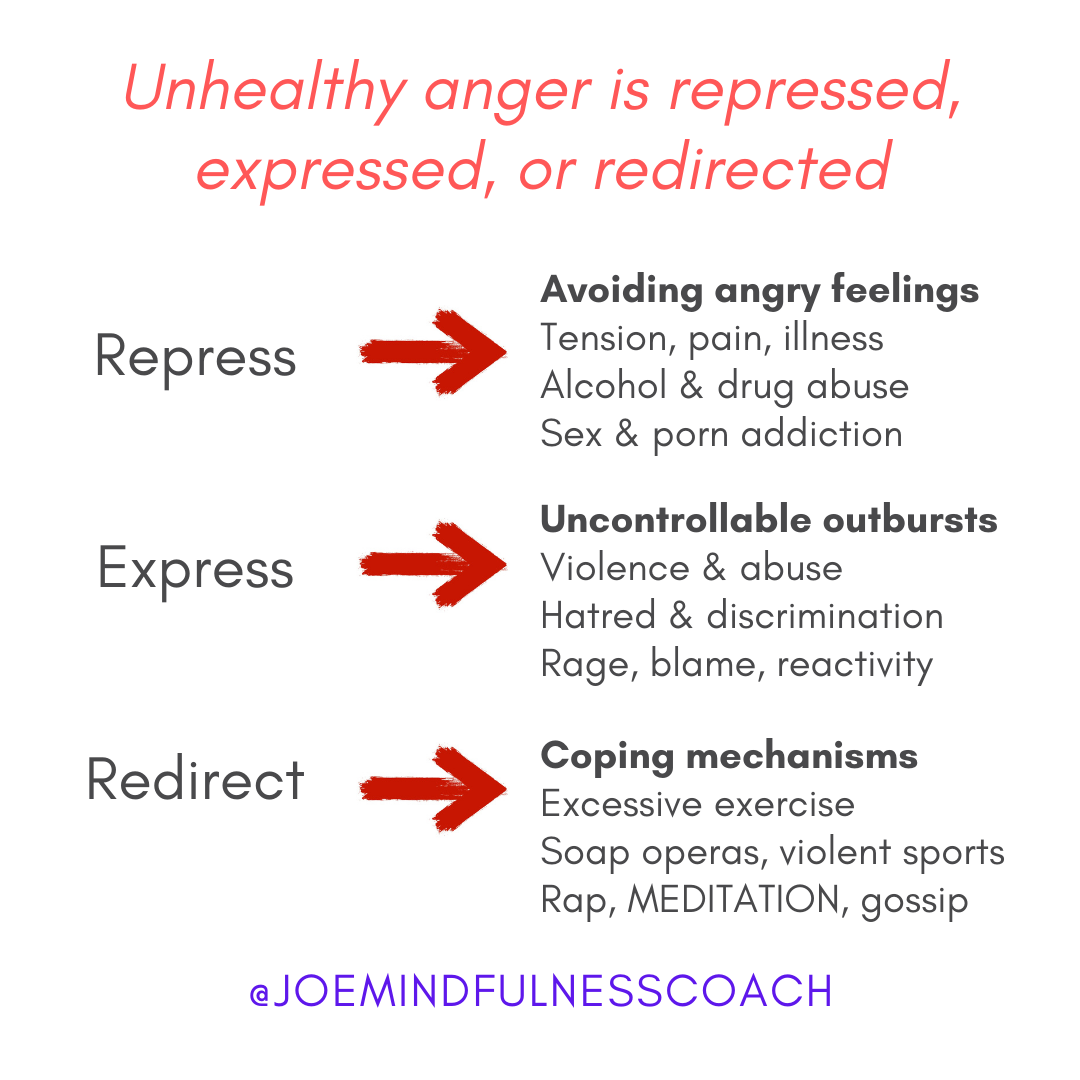The modern world is awash with things to be and get angry about.
There's so much conflict and strive happening that you could blindly go around feeling 100% justified in your seething wrath and hatred for all things.
Thankfully, however, there are also many ways of managing, dispersing, and transforming anger so you remain eternally calm... at least on the surface:
Being an exercise addict and pumping your biceps or booty at the gym
Being a troll and starting arguments with people you'll never meet online
Being a self-righteous person and venting all your anger at whatever person or topic is in the news or in fashion
Being a meditator
Many of us go around like pressure cookers, allowing our anger to gently simmer under the surface until we're forced to either purposely release some steam or—less purposefully—blow our tops.
Is this really a good way to manage anger?
Is the best thing we can do with anger, such a powerful, motivating emotion, subdue it so that, hopefully, it doesn't cause us much trouble?
The most common ways of dealing with anger in the modern world can be split into three categories: repressing, expressing, and redirecting.
Some are better and some are worse, but they're all unhealthy:
When you repress, avoid, or deny anger it gets directed towards yourself and turns into self-judgment, self-criticism, stress, tension, illness, and addictive behavior.
When you express anger it gets directed towards the world and those around you, whether it be loved ones, friends, strangers, social institutions, politicians, animals, or inanimate objects.
When you redirect anger, it gets channeled into other, “healthier” or not-so-healthy activities as a way to release the energy and maintain some calm.
It's pretty clear why the first two, repression and expression, are harmful. But what about the third way, redirecting?
Meditation and mindfulness have become accepted as a healthy way of redirecting.
Simply pop on a guided meditation and you can soothe away angry feelings, forget about that unjust thing that happened, and calmly get back to work.
But whereas redirecting is a useful and healthy method for temporarily restoring some balance and finding some peace of mind, if the underlying anger is left unaddressed, it can easily turn into an unhealthy coping mechanism (otherwise known as spiritual bypassing).
When you use methods such as meditation to bypass "negative" emotions such as anger, you unwittingly throw away the deeper intelligence, wisdom, and motivating force they hold for pursuing positive change in your life.
The mindful zombie is when you become so calm and happy but are at the same time completely unable to take concrete and sustained action in your life.
It’s no wonder most people want nothing to do with anger. Most of the anger we see in the world is ugly, reactive, harmful, and destructive.
But anger is only a destructive and negative force when it’s treated as bad and seen as a worthless side effect of being primitive monkey people. Then it either has to be repressed, directed at an object—someone or something else (including ourselves), or transformed into something better.
When anger is welcomed in and not directed toward ourselves or anyone or thing else (i.e. when not repressed, expressed, or redirected), anger is full of wisdom.
The point of mindfulness isn't to eternally get rid of anger and always be happy about everything. As Buddhist teacher Ethan Nichtern says, “anger is not mutually exclusive with equanimity.”
The point is to become aware of the habitual ways we relate to emotions such as anger and develop more healthy relationships based on listening and acceptance:
We associate anger with violence and harm and are therefore scared and ashamed of anger. When anger is allowed to arise without fear or shame, it unfolds into other emotions and reveals things we’re not happy about, as well as the energy and clarity to pursue positive change.
Anger is used as a defense mechanism to protect us from vulnerable and difficult feelings. This defense mechanism can only begin to relax when we are in a safe container (such as meditation) and are accepting of whatever emotions arise, no matter how unwanted, ugly, or unlike us they are.
Anger is a motivating energy for taking action, especially against injustice and suffering, and toward pursuing what you care about most. Anger is an emotion of action. When not directed at an object, it has chance to offer insight and energy into understanding and doing what needs to be done. This type of anger is not reactive and unhealthy, it is what the Dalia Lama calls compassionate anger—a fervent drive to do what is good and right.
It doesn't feel great to face all the things you're angry, upset, and not happy about in your life.
But to be angry about something is to care; to block anger is to not care are therefore become without hope or impetus to even want to try to improve things and make a difference.
The challenge of anger is to be able to hold its energy in a way that is free from fear, shame, judgment, and objects, so we can harness it and turn it into a powerful but harmless force in our lives.
By accepting anger, you unlock the clarity and capability to see what you truly care about, to say no to harmful behaviors, and to act in line with your deepest values.
This is the wisdom of the angry Buddha—to be so familiar and friendly with anger that it becomes a guiding force for sustained action and positive change in your life.
Who knew that was why Buddhas are so damn happy?
Much love,
Joe
This week’s newsletter is sponsored by Chartr.
Their free, 5-minute visual newsletter is packed with interesting charts and easy-to-remember insights on business, tech, and society.
Sign up today. If you sign up using this link, you also support Re:Mind!! (They send me a few dollars!)
Check out my new site for more mindfulness coaching for modern life.







